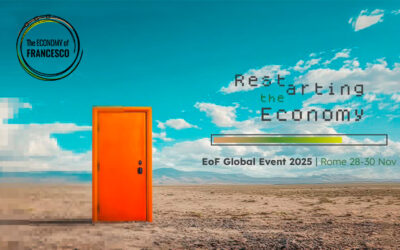Paraguay has a rich history gifted with great potentials. It is a mosaic made up of a wide variety of people, a nation divided in two: countryside and city, poverty and development. In my own life, I have gone through different stages: in the beginning, the passion for mankind: I got my first job when I was 14, then the University halls and the encounter with youth of the Focolare Movement; then the marches against the dictatorship and the first steps in a political party. Then came the second stage, “disappointment”: betrayals, inconsistencies, and my own political inability. The feeling that it wasn’t really possible to change anything. The third stage was fundamental, “choice”, the choice to love always, which led me to viewing political activity as a means for transforming society. In the year 2000, after a long troubled period, I set up an organization together with a group of friends who were already involved in the field of sustainable development. It was the beginning of the “Fundación Yvy Porã” (Beautiful Land) which in the past six years has promoted the development of dozens of projects throughout Paraguay, sustaining communities of small entrepreneurs, farmers, craftsmen, indigenous people, in urban and rural centers. However, I was still not satisfied. I wished to do something more. And so together with other politicians, I started preparing for the Latin-American meeting of mayors, which was held in Rosario, Argentina, 2-3 June 2005, and promoted by the Movement for Unity in Politics. (link) We felt it was the opportune moment to present brotherhood as a political doctrine to the Paraguayan society. We looked over the list of mayors to invite to this event. From the replies and consensus obtained we said: “It’s a new Paraguay, a risen nation working in silence, and we want to bring it to light!” This very reality was highlighted by a widely-read national newspaper that devoted a page to this meeting with the headline: “The other Paraguay.” More than a thousand politicians participated in the meeting, including 119 mayors, 168 councilmen and women, members of parliament, local and national government officials. They came from many countries of South America. The 16 mayors of Paraguay who had participated, impressed by the spirit of the meeting, proposed to other mayors a project of collaboration among the various municipalities. And on the “Paraguay Friendship Day” – July 30, 2005 – they established a protocol of understanding and fraternal twinning in order to support and promote an exchange of local development policies. This agreement was signed by 22 municipalities, an unprecedented fact in Paraguay. After these meetings we began periodic appointments to examine the doctrine of brotherhood among politicians, and we are now building a Paraguayan School of civic and political formation for young people. (C. R. – Paraguay)
Yes to God
Yes to God




0 Comments